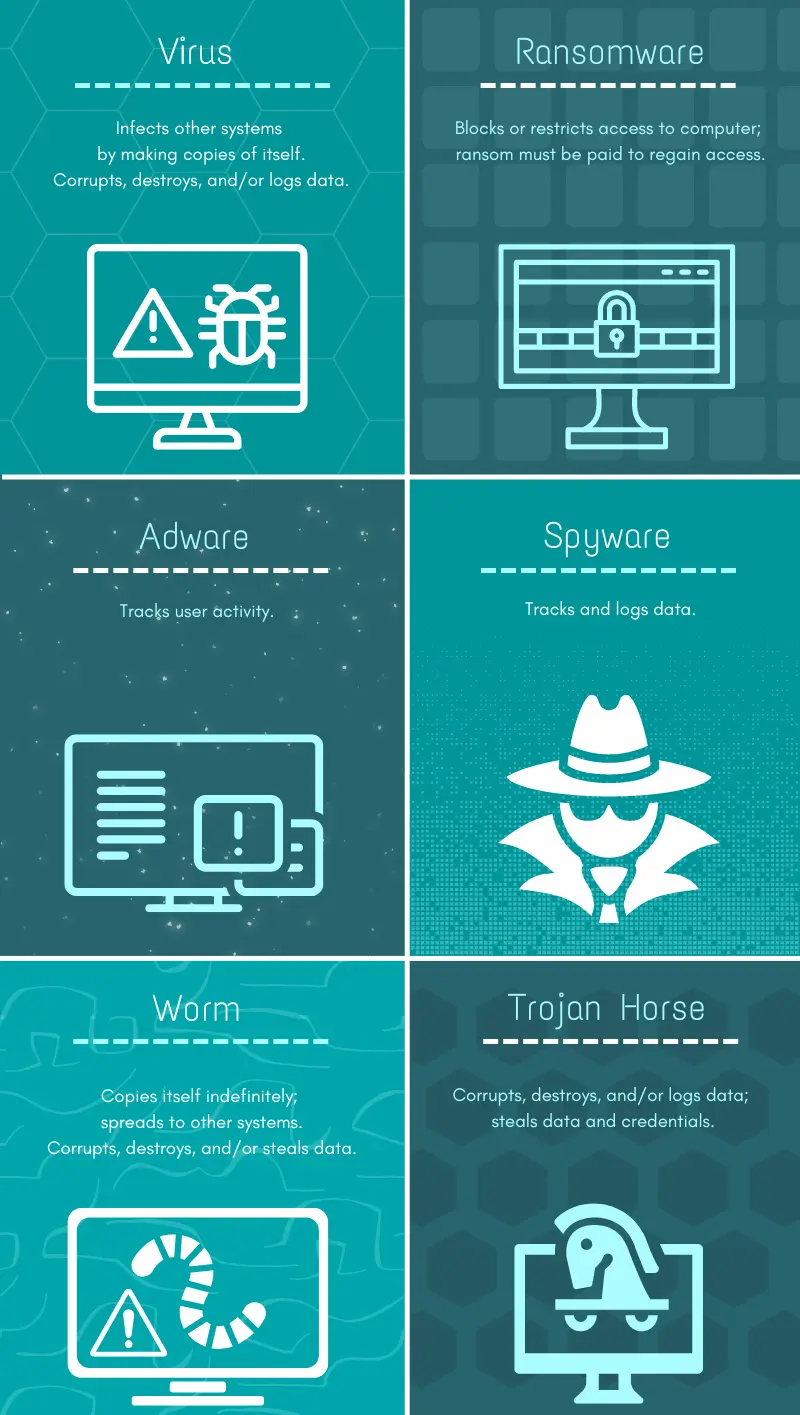
Chances are, the term malware has crossed your newsfeed recently. But what exactly is it? And why should you care?
Malware is malicious code that finds its way onto your computer or network. Its intent is “to destroy data, run destructive or intrusive programs, or otherwise compromise the confidentiality, integrity, or availability of the victim’s data, applications, or operating system” (source).
Let’s break that down further.
“Malicious code” is a hidden way for cybercriminals to sneak into your computer or network.
For example, all your friends are playing Wordle. You want to play, too, so you type “Wordle” into Google. You click on a link that leads to a download of what you think is the game . . . except it isn’t—it’s a program that looks like Wordle.
When you double-click to install the app, the code inside the app tells it to start doing malicious things to your computer—like quietly searching your system for confidential information, including credentials (i.e., your usernames and passwords).
There are numerous types of malware, including:
- viruses
- adware
- Trojan horses (like the above Wordle example)
- worms
- ransomware

Web applications (like in the above Wordle example) are the most common way malware infects a computer or network. In fact, web apps are used in 93% of breaches (source)! So before you click on a link in an email or a download on a website, you need to be sure exactly what you’re clicking—who it’s from and where it leads.
One question we often encounter is, “What’s the point of malware?”
Malware is used by cybercriminals for all sorts of reasons, but according to the findings of Verizon’s “DBIR: 2021 Data Breach Investigations Report,” the top motivating factor for malware attacks is money—it accounted for 75% of incidents across all industries (source).
A second question is, “How do I know if my computer is infected?”
Malware infections cause chaos. You might see:
- pop-up windows, even when you’re not on the internet
- toolbars or icons you didn’t install
- system crashes, slow-downs, or erratic behavior
- an inability to restart or shutdown your computer
Whether you’re curious about malware protection or think your computer is already infected, it’s time to call WYRE. We can help protect and empower your business.
